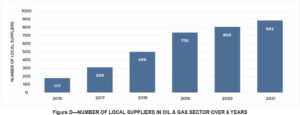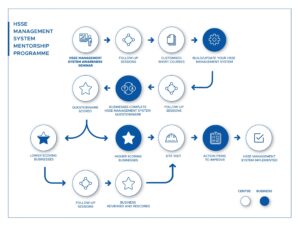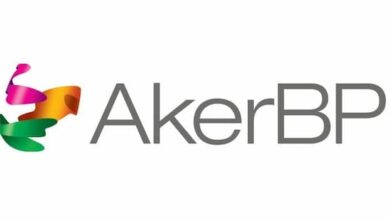ExxonMobil’s Guyana project provides blueprint for building local workforce, infrastructure in emerging E&P markets

By Stephen Whitfield, Associate Editor
In developing countries like Guyana, an oil company won’t be successful in their E&P projects if they see the oil and gas in the ground as the only resource being developed. They also must consider the potential local workforce and its technical and business capacities as valuable resources, and then identify ways to develop them. For ExxonMobil, as it embarked on its exploration and development of the Stabroek Block in Guyana, it recognized that those efforts must also encompass programs to build a competitive and thriving local business community.
In 2017, as it began Phase 1 of the Liza project, the company launched the Center for Local Business Development in Guyana’s capital city of Georgetown. The aim was to provide training to Guyanese businesses and employees, developing their skills, knowledge and abilities so they could work more effectively in the oil and gas industry.
The effort has been so successful in the past four to five years that Susan Scott, Socioeconomic Manager at ExxonMobil, said it can provide a model for other companies looking to jump-start local content development in other emerging markets.
“The center really is a one-stop shop for local capacity building, mentoring, creating networking opportunities and providing a platform for information sharing,” she said. “The insights that we’ve gained from this experience can really be a benefit for others in determining how they can foster that local participation in emerging economies, whether through doing something like this or taking the individual components and applying them to their own initiatives.” Ms Scott spoke about the center’s development at the 2022 SPE Annual Technical Conference and Exhibition (ATCE) in Houston, Texas, late last year.
When the center first launched, the focus was on engaging with local suppliers and enhancing the competencies of their workforce, as well as providing general business support. There were significant gaps in their awareness, not only of how the oil and gas sector functioned but also around its standards, practices and requirements, Ms Scott said.
The center began holding three types of basic awareness seminars – HSSE (health, safety, security and environment), intro to offshore oil and gas, and procurement. The intro to offshore class was formulated to teach local suppliers about the fundamentals, like what are the differences between the various tiers of contractors in the oil and gas sector. For example, local companies were often seeking to gain specific contracts directly with the operator because they didn’t understand how the sector’s specialized business ecosystem or procurement process operated. The seminar also showed attendees how to leverage opportunities created by local content requirements, along with the benefits their country could see from oil and gas development.
“In the early days, we were in a country that had little to no energy literacy, particularly within the local business community. We had to ensure that the local business community was engaged and really in a position to benefit from the industry,” Ms Scott said.
The procurement seminar focused on the processes around electronic procurement and bidding for work with operators. Participants learned, for example, about standard payment systems in the industry, which are typically based on milestones and completed work instead of the upfront payments that were more common with Guyanese government contracts.
From 2017 to 2021, more than 6,000 people attended the center’s seminars, and new courses have also been added on financial management, supply chain management and human resources management. “We saw that the local companies we were working with were growing at a fast pace. As a center, we knew that we had to evolve,” said Natasha Gaskin-Peters, Director of the Center for Local Business Development. “While these businesses had a base knowledge of the fundamentals, they did not know how to build management systems, so we had to take them through the process of building those systems.”
Once the center got off the ground, it then began providing tailored, individual support to various Guyanese suppliers in the form of one-on-one mentoring. The bulk of these efforts centered on training on international standards and compliance. For example, the center’s first mentoring project involved working with a Guyanese management consultancy to help it obtain certification in ISO 9001, a safety management system standard. Overall, the center has mentored 26 companies in ISO 9001 certification, including companies focused on fabrication and machining, rigging and slinging, logistics and training.

To help Guyanese companies enhance their HSSE management systems, the center also developed a program in 2018 that offered one-on-one sessions to help them review related documents. If the company did not have existing documents to review, the center would provide information on how to write HSSE manuals, including how to develop standard operating procedures, emergency preparedness policy and environmental policy. This program also included short courses on topics such as job safety analysis, workplace assessment and hazard recognition, and incident management. As of 2021, more than 370 Guyanese companies have participated in the program.
The center also continues to work with Guyanese companies to develop HSSE-focused workforce training programs. While the training could be customized according to company needs, they typically focus on five key areas of safety management: loss prevention, working in confined spaces, working at height, excavation and working near moving equipment.
In early 2022, the center kicked off its Project Management Mentorship program. ExxonMobil had identified a gap among Guyanese companies in their knowledge of how to manage multiple projects and deliverables simultaneously, effectively and in a timely manner.
The center also has ongoing dialogue with Guyanese policymakers, regulators and other key stakeholders to ensure that regulations are put in place to help bolster the local supplier industry. This is critical for local businesses, many of whom are too small to directly engage with policymakers and to have a voice in important regulatory discussions, Ms Gaskin-Peters said.
“The businesses have been very keen to win opportunities, but they don’t know how to navigate the industry and engage with the key stakeholders,” she said. “We engage governments and all the business associations, and that’s key in getting that buy-in into the local community.” DC
For more information, please refer to SPE 210444, “The Importance of Early Investments in Local Content: Lessons Learned from Guyana’s Enterprise Development Centre Five Years In.”




